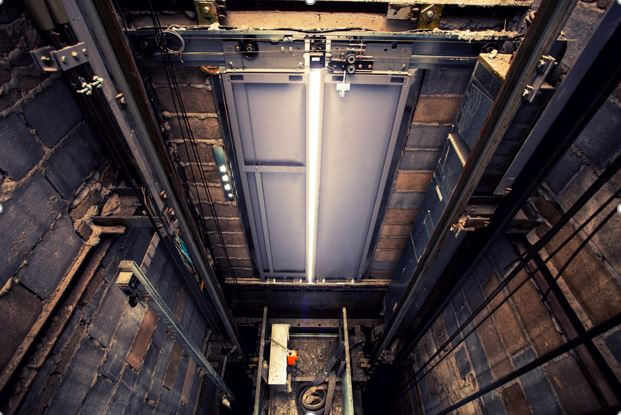Around 900,000 elevators are in operation on a given day. The average user takes 4 trips on an elevator each day. The average elevator carries 20,000 people per day. There are a total of approximately 245 million escalator rides each day.
There’s no doubt that elevators and escalators have made our society more efficient and productive. However, those benefits come at a price. According to the U.S. Bureau of Labor Statistics, incidents involving elevators and escalators cause about 30 deaths and 17,000 injuries every year.
Georgia law acknowledges how dangerous improperly designed, built, inspected, and maintained elevators and escalators can be to the people who ride them.
Property owners who have elevators and escalators on premises owe riders a duty of extraordinary care. This duty cannot be signed away by property owners by assigning responsibility for inspection and maintenance of the elevators on their property.
There are five common types of elevator accidents.
Door closures: As you probably know, most elevator doors are equipped with some kind of safety device to keep them from closing on passengers as they get on and off the elevator. However, sometimes safety devices like electric eyes, safety edges, and detector edges malfunction. When that happens, a door can close on a passenger without warning. Even worse, elevator doors are sometimes improperly calibrated or adjusted so they close faster than they should, and sometimes they close harder than they should. There are numerous rules, regulations, and industry practices designed to stop these malfunctions from happening. A skilled attorney can show that those rules, regulations, and practices were not followed.
Mis-leveling: This is the most common type of elevator accident. This occurs when the elevator fails to stop so that it is level with the hallway floor. Often, the difference in height will be subtle, and a passenger will not notice that the elevator is not completely level with the floor, resulting in a trip and fall that could lead to serious injuries. Usually, the cause of mis-leveling is improper maintenance and repair of brakes and sensors.
Over-speeding: These accidents occur when an elevator starts moving too fast. Passengers are thrown against the elevator cart wall or cart, often resulting in injuries to the neck, lower back, ankles, and knees. This sometimes happens because the elevator’s counterweights are not functioning properly, or because the elevator’s control system fails to detect and/or correct the high speed.
Shaftway falls: These injuries can obviously be very severe. Some causes are defective door interlocks, shaftway doors opening at inappropriate times, stopping of an elevator too far from its landing, and removal of passengers from stalled elevators by untrained personnel. These are clearly major malfunctions that should never happen.
Why do these accidents occur? The most common types of negligence are failing to conduct regular elevator/escalator inspections and failing to respond to complaints about elevators. Any time an elevator is not functioning correctly, the property owner and operator and/or the elevator/escalator maintenance company should take the elevator or escalator out of service immediately and thoroughly inspect it. Unfortunately, some property owners do not take such complaints seriously, or they do not want to create an inconvenience for potential passengers, so they either ignore the issue or do not attack it aggressively.
A good attorney will obtain all available documents related to complaints about the elevator/escalator in building your case. They will also obtain all maintenance and inspection records. Some inspection records will be in the government’s possession, and a good lawyer will know who will keep those records. These records may show that the elevator or escalator has had a similar problem in the past, which will help establish that the property owner/operator was on notice of the issue and failed to properly correct it.
